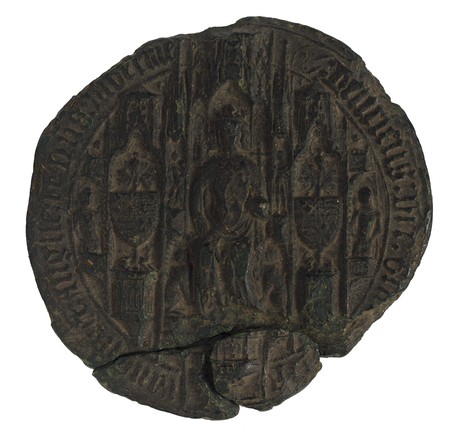
Royal seal of King Henry IV of England
c1399–1413
Beeswax with linen cord
Bequest of Sir William Dixson, 1952
DR 70
Beeswax with linen cord
Bequest of Sir William Dixson, 1952
DR 70
‘I am not in the roll of common men’
This is the first of two royal seals used by King Henry IV, who ruled England from 1399 to 1413. The design features a series of canopied niches. The centre niche shows the king seated on a carved pedestal between two lions, holding a sceptre and orb. Above the lions in small side niches are two figures; on the right, the Virgin and Child, and on the left, St George with his shield. Next to these figures, in larger canopied niches is a larger shield hanging in a branching tree, with a greyhound seated at the foot. Next to these, just inside the border on each side, is a soldier in his armour, pictured three-quarter length. The reverse side shows the king seated on his galloping horse in his chainmail, holding a sword and shield. The remains of the linen the cord used to attach the seal to the document are still visible at the top.
It is not known how the seal came into the collection of Sir William Dixson, although an accompanying note says that it was ‘at one time the property of the first Governor of South Australia’, Sir John Hindmarsh.


 Back to list
Back to list